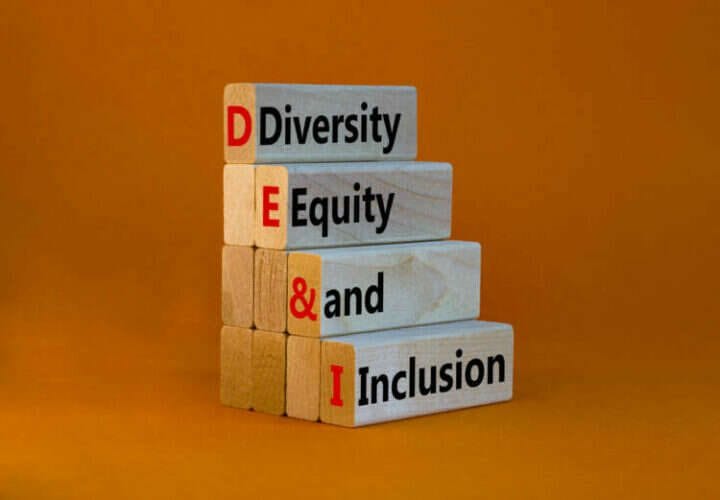

By Steven John, Head of Customer Success and DEI Lead at Summize
In this piece, Steven John, Diversity, Equity and Inclusion (DEI) Lead and Head of Customer Success at digital contracting software business Summize, draws on his personal experiences to discuss the underlying diversity issues facing the tech sector, outlining steps for business leaders to effect meaningful change.
Diversity, inclusion, equality, bias, representation, discrimination, equity, intersectionality, belonging. If these words are not yet part of your company vocabulary or being combined with meaningful ongoing efforts as part of your talent management and ongoing business strategy, then I have a simple question. Why not?
Heraclitus, a Greek philosopher, told us that “change is the only constant in life.” The business world is awash with stories of companies that failed to innovate and evolve. Adopting a DEI strategy is an essential part of business evolution. It helps a company continue to be an attractive proposition to customers and employees alike. A failure to understand and learn more about the wider set of identities and cultures within the spaces a company operates, means a business will fail to achieve its fullest potential.
Whether we consider a person’s gender, ethnicity, sexuality, physical or mental needs, religious identity or socioeconomic background, a broad spectrum of minority identities have had to overcome often significant obstacles to get to where they are today. For many, many more, those obstacles have been too difficult. While the public discourse and conversation around identities can feel sometimes feel overwhelming, I believe it can be boiled down into a simple statement. DEI is about making space for all, so everyone can achieve to their fullest potential. Isn’t high achievement exactly what you want from your employees and for your company?
The diversity problem facing UK tech has been well reported. Just five per cent of leadership positions in the UK tech sector are held by women and only four per cent of people in the UK tech workforce are Black, Asian or minority ethnic. We know from The Trades Union Congress (TUC) that two in five Black and minority ethic employees have experienced racism at work in the last five years with 1 in 13 leaving their job as a result. As a member of the LGBTQ+ community I’m disappointed there is less data regarding this community in tech, making it difficult to paint an accurate picture of the challenges faced in the workplace.
Like many people holding minority identities, I have faced many different forms of discrimination throughout my educational, professional, and personal life. A lack of knowledge, understanding and proactive engagement surrounding the ongoing topic of workplace diversity, especially in the tech sector, fuels my passion to see a more inclusive future for all identities.
Workplace diversity and social equity improve both a company culture and deliver demonstrable business benefits. We know diverse teams make better decisions and deliver better outcomes for both businesses and customers. We’ve been warned about the downstream problems if we don’t act, and we’ve been shown how and why it’s even more relevant for certain leadership roles. Tech solutions power our world and a broad spectrum of inputs ensures products and ideas don’t fail specific identities.
Whether it’s inappropriate language or actions, or a lack of empathy or understanding of the lived experiences of others, generations of people in the workplace have not learned, or been taught, how they can positively contribute towards the creation of an environment that’s welcoming and inclusive for all identities. Whilst those driving the DEI evolution play a critical part in helping to educate and build a society understanding of the need for positive change, it is the responsibility of everyone.
We must define, and redefine, workplace diversity and the spectrum it covers. Many initially focus on gender, ethnicity, sexuality, and physical abilities, however, it goes far beyond that. Active conversations need to also consider neurodiversity, the inclusion of people with atypical thinking processes.
As societal demographics evolve, we cannot assume to know the identities of our employees’ personal networks, family members and loved ones. Intersectionality, where an individual holds two or more identities, is relevant to your employees and customers, further highlighting the need for companies to include more perspectives in historically non-inclusive leadership roles and decision-making forums. If your company demographic better represent the communities within it operates, you further improve your chances of business success.
Whenever I research a company, professionally or personally, I go to the ‘about us’ page to see who their leaders are. I’ve lost count the number of times a female or ethnic minority has explained how, when considering a potential employer or a company to purchase from, they were put off due to a lack of diversity and representation in their leadership team. Inaction and exclusion is hurting your business in a way you cannot yet quantify.
If your company wants to hire the better and the best talent, you need to attract them to your business by demonstrating an understanding of the importance of a broad spectrum of inputs. Show your organisation welcomes a wider input of perspectives, recognising the need for their experiences and understanding the value it will bring to your company. Recognise this cannot be overnight change and avoid tokenism. In line with business growth strategies, time, investment, and focus leads to results. Guesswork and hope rarely pay dividends. Recognise this is not an either/or conversation.
The role that leaders play in this conversation cannot be underestimated. But they must know and understand how to contribute. Seniority does not automatically equate to expertise nor understanding. Recognise this quickly and do what every good business leader does – find someone with better knowledge and experience to own the discipline. Empower them, support them, listen to them. Give them the tools to succeed. Do not allow them, or yourself to fall at the first hurdle. Understand that some initiatives won’t immediately go according to plan. Recognise that making an honest mistake as part of positive DEI journey is better than doing nothing.
At Summize, we hold regular company-wide DEI sessions, a mix of workshops, open discussions, guest speakers and conversations centred around specific topics. Every new starter has a DEI induction session, we have a DEI statement on all jobs specs which are written to ensure they appeal to everyone. We recognise the importance of engaging with a wider talent pool to attract a broad spectrum of talent and we’ve created a company-wide survey to better understand our company demographics and identify our gaps. We recognise diversity will make us a better company.
As we continue our international growth we’re aware of the expectations of the communities we are operating in, recognising where there’s a duty for business leaders to provide positive engagement on important societal matters.
We provide internal DEI training to help us understand that perceived differences often sit alongside previously unseen similarities. We discuss words and their meanings, recognising everyone has a different starting point on this learning journey. We use company time to learn how to recognise our individual biases and how to positively engage with those around us to ensure individual beliefs are combined with an understanding of others. The Kaizen principle of continuous improvement, baked into our Growth Mindset values, means we recognise workplace diversity is an ongoing journey. Each individual and collective action takes us another step forward as we come together to achieve greatness for our company.
To empower the next generation of tech companies and leadership the starting point, for me, is expanding knowledge and accepting change. Step into the previously-unknown to achieve positive outcomes. Innovative tech companies continually iterate, tweaking and adjusting as feedback is received. Do the same when creating and implementing a DEI strategy.
Business leaders can often find DEI a difficult topic as it can challenge past decisions, often made in good faith. Demonstrate learning and leadership by acknowledging historic mistakes and communicate the path ahead with transparency. Hold a mirror up to yourselves, set objectives to hold yourselves and your company to account. Lean into newer, positive values and behaviours, living and breathing them daily. Listen to a broad spectrum of diverse voices. Recognise this is a collective journey. Learn from the things that don’t succeed and celebrate company achievements.
Be vulnerable as you learn and keep a check on pride and ego. Demonstrate true leadership to help your company achieve its fullest potential.


